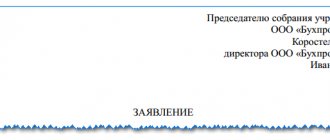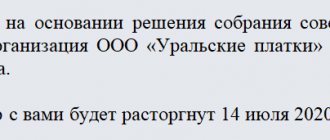Persons who have the right to receive unpaid wages of a deceased employee
Payment of wages and equivalent income not received by the employee on the day of his death is regulated by Art. 141 of the Labor Code (LC) and Art. 1183 Civil Code of the Russian Federation. Thus, the specified payments belonging to the deceased and not received by him are subject to payment to his family members or his disabled dependents.
Expert opinion
Volkov Georgy Tarasovich
Legal consultant with 10 years of experience. Specializes in the field of civil law. Member of the Bar Association.
The legislation determines the circle of family members to whom, in accordance with Art. 2 of the Family Code includes spouse, parents and children, including adoptive parents and adopted children.
The list of these persons is specified in Art. 1183 Civil Code of the Russian Federation.
In particular, it establishes that the specified amounts are paid to family members who lived with the deceased citizen, and to disabled dependents - regardless of this fact. The legislation apparently proceeds from the priority (advantage) of these persons over other heirs.
Although in practice there are cases when such payments are made to close relatives who did not live with the deceased.
Family members of a deceased relative have the right to claim unpaid wages before the expiration of the established four-month period for receiving such payments, regardless of the following characteristics:
- heirs of what order they are;
- whether they are able to work or not;
- whether they need these payments or not.
Regarding taxation and contributions
If you carefully study the Civil Code, it becomes clear that the salary of a deceased person can be called the amount received by inheritance. The death of citizens is a sufficient reason for exemption from taxes.
This means that relatives applying for payments are also exempt from fees. In such situations, the company is also freed from the need to pay insurance premiums. After all, there is no person for whom all the documents were drawn up according to the general procedure.
Benefits are often passed on to family members who do not have any relationship with the same company.
Features of calculating unpaid wages
Wages are a sum of money that is considered as a means of subsistence for citizens, payable during their lifetime, but not received by them for various reasons at the time of their death. Therefore, in the event of the death of an employee, the employer is obliged to make a final calculation of his wages and all payments that are equivalent to it.
Unpaid wages include the employee's tariff rate or salary for the time actually worked, bonuses and additional payments, bonuses and rewards (if required by working conditions). If the employee was ill before his death, then it is necessary to calculate sick leave payments.
The final payment is subject to all wages accrued to the deceased employee, as well as compensation for unused vacation (if any), minus the appropriate taxes, when provided for by tax legislation.
Article 137 of the Labor Code of the Russian Federation defines deductions that are not made by the employer from the wages of a deceased employee. reimbursement , deductions for the payment of alimony are also stopped, and so on.
Features of dismissal of an employee due to death
Death can occur unexpectedly, sometimes before retirement age. If a citizen was officially employed, it is important for the employer to properly end the relationship. The Labor Code of the Russian Federation prescribes a clear algorithm of action.
Legislative regulation
Dismissal refers to the termination of the employment relationship between an employer and an employee, as well as the dismissal of government, military and other types of employees. Possibly for the following reasons:
- employee initiative;
- the will of the leader;
- mutual agreement;
- due to circumstances beyond the control of the parties.
The death of a citizen refers to the latter option, as recorded in Art. 83 of the Labor Code of the Russian Federation (clause 6). If a similar situation arises at an enterprise, HR personnel need to know how to properly fire a deceased employee.
The procedure for terminating a work contract is carried out according to the rules specified in Art. 84.1 of the Labor Code of the Russian Federation, but with some nuances. For example, documents (orders, bypass orders, etc.) do not require the signature of an individual for obvious reasons, although in other situations this is a mandatory point.
Deadline for submitting claims for payment of unpaid wages
The deadline for family members to apply for unpaid wages to a deceased employee is determined by clause 2 of Art.
1183 Civil Code of the Russian Federation. Thus, it has been established that claims for these payments can be made within four months from the date of opening of the inheritance .
On this day, according to Art. 1114 of the Civil Code of the Russian Federation, is the day of a person’s death or the day a court decision enters into legal force by which he will be declared dead.
The established period differs from the period for accepting the inheritance, which is limited to six months from the date of opening of the inheritance (clause 1 of Art.
1154 of the Civil Code of the Russian Federation).
Basically, problems with observing the four-month period from the date of opening of the inheritance arise when several heirs simultaneously declare their claim. While they are sorting out among themselves who has more rights to receive payments, the deadline expires, and the law does not provide for a different interpretation of this fact. But there are still cases of court decisions in favor of such heirs and the terms are restored.
Conditions for including unpaid wages in the total inheritance estate
The absence of persons having a priority right to receive unpaid wages belonging to a deceased person is not a reason not to pay them at all . The norms of the Civil Code of the Russian Federation define two mandatory conditions under which such payments are included in the total inheritance mass and are subject to inheritance by all heirs on the grounds provided for by law:
- absence of heirs of the deceased (members of his family living with him) and his disabled dependents, who by law had a priority right to receive his settlement payments;
- failure by these persons to comply with the established four-month period for submitting requirements for their receipt.
The unpaid income of a deceased citizen is included in the inherited property in accordance with Art. 1112 of the Civil Code of the Russian Federation, which excludes which property rights and obligations of the testator are not included in the inheritance.
Procedure for payment of unpaid wages
There are often cases when the priority right to inherit unpaid wages after a deceased citizen is held not by one, but by several heirs who lived with him, as well as, in addition to them, disabled dependents who have not yet lived with him.
The unpaid settlement amount must be paid to all applicants who contacted the employer within the period established by the Civil Code of the Russian Federation. By agreement between them, the payment is made to one of them, after which it goes to the common shared property of the heirs and is divided proportionally between them in equal parts .
Otherwise, the dispute is resolved through court.
Payment procedure
Wages accrued but not paid for various reasons to an employee who has died are deposited and kept in a special account until claims for payment are made by family members of the deceased or his disabled dependents.
But, on the other hand, the employer is not obliged to search for family members of the former employee and find out the reason for their failure to apply for payments.
Required documents
In order to receive unpaid wages, as well as compensation for unused vacation belonging to a deceased person, members of his family who lived with him and/or disabled dependents must contact his former place of work with a package of necessary documents . It includes:
- a written application for payment of uncollected settlement amounts;
- a copy of the death certificate of a relative (breadwinner);
- a copy of a document, usually a passport, identifying the person who applied;
- documents confirming the relationship and cohabitation with the deceased person of the applicant; or confirmation of the relationship of such a person to a disabled dependent who was fully supported by the breadwinner for at least one year before his death.
Expert opinion
Expert opinion
Volkov Georgy Tarasovich
Legal consultant with 10 years of experience. Specializes in the field of civil law. Member of the Bar Association.
In accordance with Art. 141 of the Labor Code of the Russian Federation, wages not received by the day of the employee’s death are issued to members of his family or to a person who was dependent on the deceased on the day of his death.
The biggest problem in the practical application of this rule is to find out who the family members of the deceased are.
Unfortunately, the Labor Code of the Russian Federation does not contain a definition of family members and dependents to whom wages can be issued, so employers quite often mistakenly issue it to any relative of a deceased employee, regardless of the degree of relationship (and even the presence of documents confirming the relationship). However, this cannot be considered correct.
In accordance with Art. 2 of the RF IC, family members include: spouse, parents (adoptive parents) and children (including adopted ones). We believe that wages can be given to other relatives only if the deceased employee does not have these family members.
The Labor Code of the Russian Federation does not contain an indication of who should be paid the wages due to a deceased employee if several relatives and (or) dependents apply, so it can be issued to any of them or the first one who applied for payment. In practice, as a rule, the salary is paid to the person who presents the original death certificate.
His mother and his wife simultaneously applied for payment of wages not received on the day of the employee’s death. Who should pay the employee's salary, since both women have equal rights to receive it?
In such a situation, indeed, both applicants have equal rights to receive the appropriate payments.
However, the Labor Code of the Russian Federation does not contain any rules allowing for the division of the amount not received by the day of death among several persons who have applied for its payment and have the right to do so. We believe that in such a situation the issue should be resolved by agreement between the applicants, and in the absence of agreement between the wife and mother of the deceased employee - in court.
We also believe that if applications and relevant documents for receiving payments were submitted by the wife and mother of a deceased employee at the same time, and the employer made payments to only one of the family members, then the other family member has the right to file a claim against the latter demanding the recovery of part of the wages .
A situation may also arise when no one applies for the wages of a deceased employee. At the same time, the legislation of the Russian Federation does not oblige the employer to search for family members of the deceased, or to establish the fact of their absence. Family members or heirs must themselves apply to the employer for appropriate payments.
In such cases, unclaimed amounts must be deposited. The algorithm of actions is as follows.
Step 1. In the payroll (settlement and payment) statement in form T-49 (approved by Resolution of the State Statistics Committee of Russia dated January 5, 2004 No. 1 “On approval of unified forms of primary accounting documentation for the accounting of labor and its payment”), a stamp must be placed next to the employee’s last name or do o.
Step 2. At the end of the document, you need to make a note about the amounts to be deposited.
Step 3. Compile a register of deposited amounts (it must indicate the employee’s personnel number, his data, and the deposited amount).
Step 4. Transfer the deposited amount to the bank or deposit it with a public notary at the place where the inheritance was opened, after which the employer’s obligation to pay will be fulfilled.
Journal: Personnel Directory, As of: 08.08.0012, Year: 2012, Number: No. 9 Author: Elena Vasilievna Orlova
The employer is obliged to pay employees wages for performing labor functions. According to the law, wages must be paid in cash from the organization's cash desk in person to the employee or transferred to his bank account. But if the employee dies, his relatives can receive money for him.
Dear readers! To solve your specific problem, call the hotline or visit the website. It's free.
Who has the right to receive the wages of a deceased relative?
According to the provisions of the Labor Code (in particular, Articles 22, 136), wages are transferred in cash to the employee himself or transferred to his account. But if the employee died before the employer managed to pay him, then such wages become accrued, but unpaid.
In such a situation, the employer should be guided by the provisions of Art. 141 of the Labor Code.
It says here that the salary accrued to the employee can be received by the relatives of the deceased or persons who were dependent on him. But in practice, confusion often arises as to who needs to pay the deceased’s salary if several people apply or difficulties arise in determining who can be considered relatives of the deceased (the Labor Code does not provide a decoding).
According to Art. 2 of the Family Code, family members include spouse, children and parents . That is, these categories of relatives have unconditional priority in obtaining the right to a salary over other categories of applicants.
But according to ch. 15 of the Family Code, relatives also include brothers and sisters, grandparents, and grandchildren. Therefore, the employer can pay the salary of the deceased to the first person who applied and confirmed the fact of relationship with documents.
When several employees apply for wages, they are distributed among them based on an agreement between the parties or by court decision.
In order not to become the subject of family proceedings, the employer can do this: transfer money to the account of the deceased with a note that the account owner has died. This money will be part of the inheritance mass.
In the future, it will be decided how the salary will be distributed among relatives based on the rules of the law in accordance with the order of inheritance or according to a will.
Another option is to deposit the deceased’s salary until the issue of the deceased’s inheritance is resolved. Then pay the salary to the legal heirs of the former employee.
It is worth noting that the procedure for transferring wages to the relatives of the deceased under Art. 141 of the Labor Code conflicts with the norms of paragraph.
1 tbsp. 1183 Civil Code.
The Civil Code, as the basic document that regulates inheritance, specifies that unpaid wages can only be received by those relatives and dependents who lived together with the deceased. Whereas the Labor Code does not contain such a condition: it states that the right to receive wages belongs to the employee’s family members without the requirement of cohabitation.
The payments that are due to the relatives of a former employee include not only the salary he did not receive, but also compensation for unused vacation, as well as other amounts that are due to the employee under the employment contract concluded with him.
How to apply
Wages for a deceased employee are paid based on applications received from relatives. The employer himself is not obliged to look for the relatives of the deceased so that they can receive a salary for him.
The procedure for issuing wages for a deceased relative includes the following steps:
- A relative submits an application for payment of a salary that was not received by the day of death, addressed to the head of the organization, and attaches a set of necessary documents to it. It contains a request to transfer wages for a deceased employee.
- One copy of the application is given to the relative with a note of acceptance and the date of its receipt.
- An application for payment of a salary that has not been received by the day of the employee’s death is registered in a special application register maintained by the organization.
- Within the established time frame, the employer pays the relative’s salary or transfers it to the account specified in the application. The employer's decision is written down on a copy of the application.
- In case of refusal, the employer must provide a written reasoned decision to the relative of the deceased . If a relative considers such a decision to be unfair, he has the right to appeal the employer’s actions in court.
The salary application does not have a set form and is drawn up in a free format. The relative can write it by hand or type it on the computer. The application should include the following information:
- Details of the employing company : name of the organization, its address, tax identification number, checkpoint, full name and position of its head.
- Full name of the applicant.
- Full name of the deceased employee , his position and department.
- Relation degree.
- Date of death and details of the document that confirms this (series, death certificate number and name of the authority that issued it, or court decision).
- Salary payment deadlines (expiration date of a week from the date of application).
- Please pay wages and other payments due to the employee.
- Signature of a relative with transcript.
- Date of application.
- List of attachments to the application.
Also in the application, the relative specifies the preferred method of receiving money: in cash or to an account. In the latter case, he needs to provide the details for transferring money.
The application must be drawn up in two copies and submitted personally through the company secretariat or sent by mail in a valuable letter with a list of the contents. The latter option may help if the employer refuses to accept and consider the application voluntarily.
The relative should keep one copy of the application until he receives a response from the employer.
Financial assistance upon death of an employee
Financial assistance does not apply to wages. This assistance is paid at the discretion of the employer, but the assistance is not a mandatory payment. If the enterprise has a Regulation on the provision of material assistance, then it must be provided within the framework of this regulation. This is also sometimes stipulated in collective and labor agreements. Financial assistance can be paid both at the deceased employee’s enterprise and at the relative’s place of work.
One type of financial assistance is payment in connection with the death of a relative.
To receive financial assistance issued by order of the manager, the relative must provide:
- application for free form
- supporting documents
Relatives of the deceased may apply for one-time financial assistance. Moreover, such assistance is not subject to personal income tax, regardless of its size.
Payments of financial aid upon death (on the same basis) at the same enterprise, which are paid in separate amounts, are not considered lump sums and the second amount is subject to personal income tax.
Important! Financial assistance does not depend on the employer’s funds used to pay it and whether it is provided for by local regulations. It may be paid selectively.
Required documents
In addition to an application requesting payment of wages for a deceased relative, the applicant must provide the employer with:
- A document confirming the death of the deceased (death certificate).
- Identity document (passport or birth certificate).
- A document confirming relationship with the deceased (marriage certificate, birth certificate, etc.).
Expert opinion
Volkov Georgy Tarasovich
Legal consultant with 10 years of experience. Specializes in the field of civil law. Member of the Bar Association.
The list of documents that are attached to the application is specified in the appendix to it. In some cases, the applicant additionally attaches a bank account statement with details for transferring money.
Registration of compensation (necessary documents) upon death of an employee
When making a claim for compensation, the employer does not select a specific family member to receive payment for the deceased. If relatives apply at the same time, then the issue of issuing benefits is resolved by agreement of the parties or through the court. The claim must be made within 4 months from the date of death, otherwise this amount is included in the amount of the inheritance.
The employer must verify the fact of relationship of the persons applying.
It is advisable to issue the amounts in cash from the cash register, since transferring them to the employee’s salary card after death (if the fact of death is known) may lead to the repeated collection of these amounts. But the funds on the card are part of the inheritance and are inherited in the general manner.
The issuance of these amounts to relatives is carried out upon provision of documents confirming:
- fact of death (death certificate)
- relationship (marriage certificate)
- application for payment
To receive a funeral benefit amounting to 5,701.31 rubles. (paid on the day of application) additionally provided:
- statement
- death certificate from the registry office
- document confirming payment for funeral services, issued by funeral organizations
Payment terms
To receive wages for a deceased relative, the applicant must apply for it within 4 months after his death. This statute of limitations is prescribed in paragraph 2 of Art. 1183 Civil Code.
In this situation, he is obliged to compensate for the costs and transfer, in addition to the salary, compensation in the amount of 1/150 of the Central Bank refinancing rate for each day of delay. It is charged on the entire amount detained, regardless of whether the employer is at fault.
Failure to transfer compensation for late payment of wages is a direct violation of labor legislation , in particular, Art. 236 TK.
If the employer voluntarily refuses to transfer compensation, then relatives can appeal his actions to the labor inspectorate. Based on the inspection, the employer may additionally be subject to administrative liability in the form of a fine.
Subsequently, the deposited salary is included in the estate, and the legal heirs receive the right to it. If for three years the deposited salary remains unclaimed, then it is written off and included in the organization’s income.
A similar procedure applies if the employer has doubts regarding a relative’s claims for wages (for example, he was approached by a distant relative or a person who could not properly confirm the relationship).
Additional payments after the death of an employee
Relatives of the deceased may be paid financial assistance if it is established in the local regulations of the organization itself, an employment contract or an order of the manager. It is impossible to oblige a company to issue additional funds on the basis that such practice is common.
Important
A citizen who paid for the funeral is entitled to receive a social benefit for burial by the enterprise that was the insurer of the deceased under compulsory medical insurance.
The basis for it is Law No. 8-FZ of January 12, 1996. To receive this benefit, the employer must provide:
- Statement from the person who paid the funeral expenses.
- A certificate or certificate issued by the civil registry office.
For your information
The manager's request to provide documentary evidence of expenses incurred is illegal.
The amount of the benefit is established on the basis of the list of funeral services and is 4 thousand rubles with the addition of the indexation amount. The coefficient by which the benefit is indexed is established annually by the Government of the Russian Federation.
Is the salary of a deceased employee subject to personal income tax and contributions?
If relatives received the salary through the inheritance procedure, then they also do not pay personal income tax on it. Exceptions are the remunerations received by the heirs of the deceased’s copyright under Art. 217, 218 Tax Code.
Thus, the salary not received by a deceased employee can be issued to his relatives on the basis of Art. 141 of the Labor Code.
Payments in favor of relatives include salary, compensation for unused leave upon dismissal, as well as various compensation and incentive payments that apply in the organization. To do this, they must provide an application addressed to the employer with a request to pay them money, as well as documents that confirm the relationship, identity and death of the relative.
Disputes regarding who is entitled to the deceased's salary are resolved by relatives independently without involving the employer. There is no income tax on posthumous salaries transferred to relatives.
Whereas insurance premiums are charged in full on a general basis.
Termination of the employment contract, in accordance with clause 6, part 1, art. 83 of the Labor Code of the Russian Federation, can also occur in connection with the death of an employee. Management is faced with the question of not only issuing an Order to terminate the employment relationship, but also who should pay the wages and whether it is necessary to deduct personal income tax in the amount of 13%.
To find out more, subscribe to our Telegram channel - https://t.me/lawprotects.
What date is the order issued?
An important point will be the correct determination of the date that will appear in the dismissal documents. According to the general rule of law, termination of the contract occurs upon notification of the death of a person, with all documents dating the day of death indicated in the submitted certificates.
Difficulties regarding what date to fire a deceased employee arise when the day of death falls on a non-working day, sick leave, or vacation. In such situations, one should proceed from the logic that it is not possible to extend the contract until the next working day or the end of vacation if, judging by the documents, the person is already considered dead.
Thus, all personnel documents and calculations are made on the date indicated in the death certificate issued by the registry office, or on the day the court decision is issued.
Download the order of dismissal due to the death of an employee (standard T-8 form is used): Order to terminate a trade agreement with an employee. Form T-8 (41.5 KiB, 2,068 hits)
Payment procedure
Norm Art. 141 of the Labor Code of the Russian Federation states that it is necessary to pay the wages of a deceased employee , but payments are not limited to one salary.
According to the general rule of payments in connection with dismissal, the employee, in addition to salary, must also be paid compensation for unused vacation. This provision also applies in the event of death.
Funds are transferred to close relatives who submit the appropriate application to the head of the organization.
Sequencing
The payment algorithm itself is as follows:
- Drawing up an Order to terminate an employment contract and personnel documents.
This act is issued in the unified form T-8, but a company letterhead can also be used as a basis.
Expert opinion
Volkov Georgy Tarasovich
Legal consultant with 10 years of experience. Specializes in the field of civil law. Member of the Bar Association.
The main difference from the usual termination or termination of an employment relationship will be that the Order will not have the employee’s signature.
The date of dismissal is the day of the employee's death. The same applies to personnel documents (work book and personal card).
There is no need to require relatives to sign, but the employer may ask them to pick up the work book. In this case, relatives provide a written statement.
Reference. If none of the relatives come for the work book, the organization must store it together with the personal card for 75 years (Order of the Ministry of Culture of Russia dated August 25, 2010 No. 558).
- Receiving an application from the relatives of the deceased for payment of his salary.
Family members of a deceased employee must apply in writing to the head of the organization to receive his wages accrued until the employee’s death. More details about the procedure and deadlines are below.
The amount of money must be paid within 1 week from the moment the manager receives the application (Article 141 of the Labor Code of the Russian Federation).
- Calculation of payment.
As mentioned above, wage balances and compensation for unused vacation are accrued as payments, but provided that the employee did not go on vacation in advance until the end of the working year. In this case, the employer does not have the right to collect the amount of debt from relatives or withhold a percentage of the remaining salary (clause
4 hours 2 tbsp.
137 Labor Code of the Russian Federation).
The salary includes all bonuses, additional payments (for example, for work at night or “for harmfulness”), allowances (for example, the northern coefficient, etc.).
In addition to the above payments, relatives of a deceased employee may be paid:
- temporary disability benefits (if an employee died while on sick leave) - issued only to family members with whom the deceased lived together;
- maternity benefits (for employment and child care), if the employee died during the specified leave;
- travel expenses if the employee died during a business trip;
- financial assistance to relatives, provided that such payment is provided for by local acts of the organization or a collective agreement.
Important! Also, the relatives of the deceased must be paid a funeral benefit. In accordance with Part 2 of Art. 10 Federal Law of January 12, 1996 No. 8, this payment is the responsibility of the employer.
Deposit
If an employee who receives wages in person, that is, through the organization’s cash desk, and not to a bank account (card), but was unable to collect it for some reason, the amount must be deposited.
Depositing refers to the process of reflecting the salary in accounting as not received by the employee.
This also applies to the situation with deceased employees.
According to general rules, you can receive such a salary:
- on the day of the next issue;
- on a day specifically established by a local act of the organization as the period for receiving deposited salaries;
- upon the written application of the employee himself on the day specified by him (provided that such an amount is in the cash register).
The basis for issuing the deposited salary of a deceased employee is a written statement from his relatives. In this case, the general rule applies, according to which the amount must be issued within 1 week from the date of application.
Overdue
An employer who has not paid the deceased employee’s wages and compensation within 1 week from the date of receipt of the application will bear financial and administrative liability (Article 5.27 of the Code of Administrative Offenses of the Russian Federation).
Financial liability, in accordance with Art. 236, is to charge interest for each overdue day. The amount of the penalty cannot be less than 1/150 of the rate of the Central Bank of the Russian Federation.
To whom and when is it paid?
First of all, it is necessary to determine the list of persons who are entitled to receive payments for a deceased relative. First of all, close relatives can claim this right (Article 14 of the RF IC):
- spouse);
- children (natural or adopted);
- parents (adoptive parents);
- siblings;
- Grandmothers and grandfathers.
Other relatives (aunts or uncles, nephews, stepfather or stepmother, stepson or stepdaughter, etc.), in the absence of the above, also have the right to apply to the employer for payment.
In addition to relatives, his disabled dependents also apply for wages.
In accordance with Art. 1183 of the Civil Code of the Russian Federation, family members were required to live together with the deceased, while this rule did not apply to disabled dependents.
They may also be relatives of the deceased who lived separately but depended on his earnings, for example, disabled parents.
Labor legislation does not determine the priority.
Important! Practice advises employers to pay wages to the relative (dependent) who submitted the application first.
The employer is not obliged to somehow divide the payment amount between relatives if several applications are submitted.
Deadline
Expert opinion
Volkov Georgy Tarasovich
Legal consultant with 10 years of experience. Specializes in the field of civil law. Member of the Bar Association.
In accordance with paragraph 2 of Art. 1183 of the Civil Code of the Russian Federation, relatives who lived with a deceased employee or dependents have the right to contact the employer within 4 months from the date of death of the employee .
If an application was not submitted within this period, the employer, in accordance with paragraph 3 of Art. 1183 of the Civil Code of the Russian Federation, payments are transferred to the inheritance estate. The employer must transfer it to the notary's deposit.
Relatives who submitted an application after 6 months must also be sent to a notary, since the salary will now be issued not in order of priority (who filed the application first), but in the order of legal or testamentary inheritance.
Documents and application procedure
First of all, a written application is required from relatives or dependents. It is drawn up in writing and must contain all the information necessary for the employer to confirm the existence of a relationship (dependency of the applicant).
- Statement header.
The applicant must submit the application to the deceased's employer. Thus, the following are indicated:
- full name of the organization;
- Name and position of the manager.
It is also necessary to provide information about the applicant himself:
- FULL NAME;
- passport details;
- address and contact details.
- Main part.
In the main part, it is necessary to express a request to transfer wages and other amounts due that were not received by the employee (full name, position) due to death. You must also indicate:
- who is the applicant’s relationship to the deceased (with reference to a document confirming relationship/dependency, as well as with reference to a document confirming cohabitation);
- details to which the amount should be transferred.
- List of documents attached to the application.
The application must include a list of attached documents.
To confirm your rights you will need:
- death certificate (court decision declaring a citizen dead);
- applicant's passport;
- a document confirming the relationship (birth certificate, marriage certificate, etc.);
- a document confirming that relatives live together (extract from the house register or a single housing document).
If, in addition to wages, the applicant requires a funeral benefit, the following must be attached to the documents:
- death certificate (not certificate) in form 33, issued by the registry office;
- a check or other document confirming payment for funeral services.
The application must contain the date of its submission and the signature of the applicant with a transcript.
Recording in labor
The law obliges the employer to make an appropriate entry in the work book of the dismissed person. If the process of termination of cooperation is carried out for reasons beyond the control of the parties, the employer is obliged to provide a link to the relevant paragraph of Article 83 of the Labor Code of the Russian Federation.
The completed book must be given to the employee’s relatives. Usually the document is received by close relatives of the person:
- spouses;
- parents;
- children.
IMPORTANT
You should not leave your work record with your employer. The document must be collected without fail. It guarantees the fact that the organization has no financial claims against the former specialist. Based on the document, loved ones will be able to receive part of the accumulated pension. Therefore, you need to request a work book from the organization.
In order for the company to agree to issue documentation, relatives must provide:
- application (filled out in writing);
- documents confirming the death of the employee;
- the applicant's identity card;
- a document confirming relationship with the deceased citizen.
The HR specialist is required not only to look at the papers, but also to make photocopies of them and attach them to the employee’s personal file. Before handing over the documents, you will need to make an entry in the labor book. It is indicated in the column “Receipt of the employee for receipt of the work book.” The details of the person to whom the document was provided are entered here. The fact of receipt of the work book is confirmed by a signature.
Additional Information
If relatives live in another city and cannot pick up the work book in person, you will need to send a request to the organization’s address. Authorized specialists will review it. If the request and accompanying papers are completed correctly, the document will be sent by mail. Instead of a signature in the accounting book, you will need to put down the data copied from the postal receipt.
If no one comes to collect the work book, the manager is obliged to keep the document for 50 years. The HR specialist must send a letter to the address indicated in the personal file. The message must notify relatives that they may request that the document be sent to this address.
If several relatives want to pick up the work book at once, the document must be provided to the citizen who first contacted the organization.









